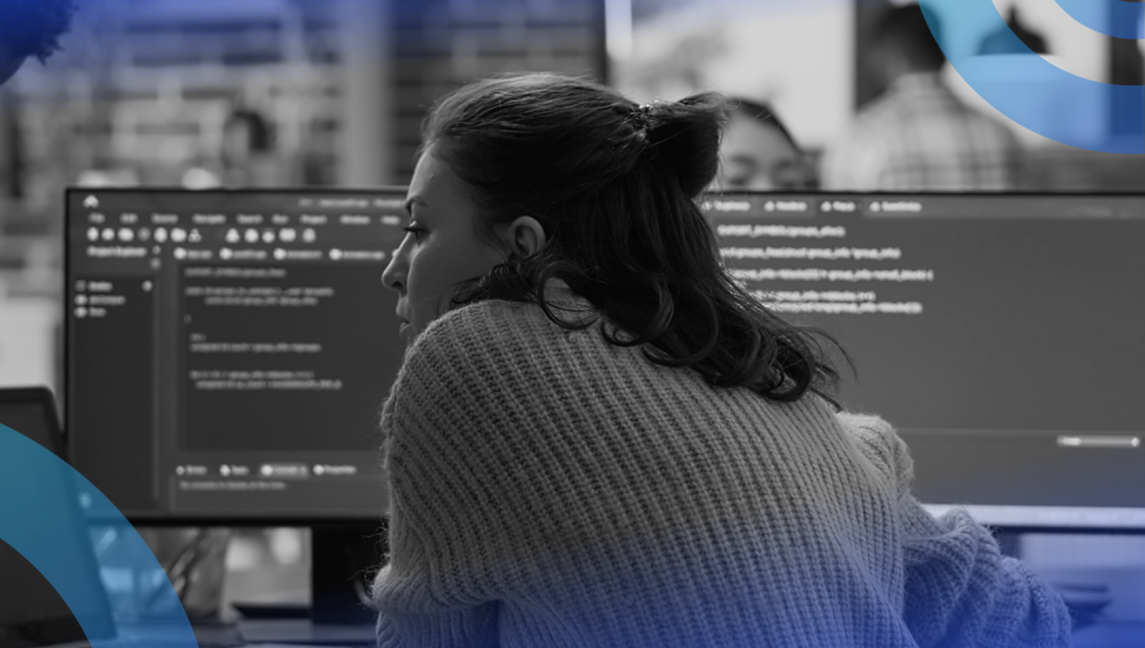Analyst Programmer_AP102: Algorithms and Python Programming (Supreme)

About Course
In this course, we will focus on the following:
- Computer Programming concepts
- Python programming language
- Use of Python’s built-in standard library
- Fundamentals of Algorithms
Upon successful completion of this course, the student will have demonstrated the ability to:
- Create a software application using the Python programming language.
- Debug a software application written in the Python programming language.
- Test a software application written in the Python programming language.
Course Content
Module 1
-
02:51
-
12:41
-
LO2: Define Pseudocode and differentiate between pseudocode and programs
04:39 -
LO3: Explain the Flowchart and its symbols used
08:21 -
LO4: Knowledge Check
-
Case Study: Introduction to Algorithm, Pseudocode, and Flowchart
-
03:27
-
02:10
-
LO2: Describe the Input and Output operations in Python
02:11 -
LO3: Elaborate on Variables, Expressions, and Statements
02:31 -
LO4: Name and describe Values and Data Types
03:59 -
LO5: Describe operators and their types
11:18 -
LO6: Knowledge Check
-
Case Study: Introduction to Python Programming
-
03:05
-
04:29
-
LO2: Analyse how to Avoid Debugging
03:31 -
LO3: Discuss the Beginning Tips and Know your Error Messages
06:55 -
LO4: Knowledge Check
-
Case Study: Debugging Interlude
-
Topic 4: Python Turtle Graphics
02:22 -
LO1: Explain about Instances, for loop, and Flow of Executions
08:37 -
LO2: Define Iteration and the Range Functions
05:26 -
LO3: Knowledge Check
-
Case Study: Python Turtle Graphics
-
Topic 5: Python Modules
02:36 -
LO1: Define Modules and Getting Help
03:51 -
LO2: Compare and contrast the math module and the random module
05:52 -
LO3: Knowledge Check
-
Case Study: Python Modules
-
Topic 6: Functions
03:03 -
LO1: Define Functions, Arguments, and Unit Testing
09:29 -
LO2: Discuss Local Variables and Parameters
01:26 -
LO3: Interpret the Accumulator Pattern and Program Development
02:02 -
LO4: Understand the Nesting Functions, Flow of Execution, and using the main() function
03:03 -
LO5: Knowledge Check
-
Case Study: Functions
-
Topic 7: Selection
02:52 -
LO1: State Boolean Values and Expressions
03:35 -
LO2: Explain the Precedence of Operators
03:27 -
LO3: Discuss Conditional execution, Nesting, and Chaining Conditionals
04:26 -
LO4: Knowledge Check
-
Case Study: Selection
-
Topic 8: More about Iteration
02:44 -
LO1: Elaborate the for loop and the while statement
11:38 -
LO2: Explain Applications, Patterns, Sentinels, and Input Validation
04:28 -
LO3: Knowledge Check
-
Case Study: More about Iteration
-
Topic 9: Strings
02:48 -
LO1: Describe a Collection Data Type, Indexing, String Methods and Slicing
10:08 -
LO2: Discuss Traversal Patterns along with the in and not-in Operators
02:12 -
LO3: Knowledge Check
-
Case Study: Strings
-
Topic 10: Lists
03:27 -
LO1: Elaborate Concatenation, Repetition, and Element Deletion in Lists
01:41 -
LO2: Describe Objects and References
05:03 -
LO3: Define Lists and explain lists using for loop
03:19 -
LO4: Define Lists as Parameters and Return values from functions
02:34 -
LO5: Understand List Comprehensions and Nested Lists
06:19 -
LO6: Knowledge Check
-
Case Study: Lists
-
Topic 11: Files
02:23 -
LO1: Describe Working with Data Files
03:29 -
LO2: Explain Reading and Writing Text Files using with Statements
03:35 -
LO3: Knowledge Check
-
Case Study: Files
-
Topic 12: Dictionaries
02:50 -
LO1: Describe Dictionaries and their Operations
05:50 -
LO2: Explain Aliasing and Copying
04:01 -
LO3: Knowledge Check
-
Case Study: Dictionaries
-
Topic 13: Exceptions
03:25 -
LO1: Describe Exception Handling and Flow-of-control
08:09 -
LO2: Explain the Principles of using Exceptions
01:54 -
LO3: Discuss Catching Multiple Specific Exceptions
02:59 -
LO4: Assess Clean-up after Exceptions
02:27 -
LO5: Knowledge Check
-
Case Study: Exceptions
-
Topic 14: Recursion
02:42 -
LO1: Explain Recursion and the Laws of Recursion
05:29 -
LO2: Describe Visualizing Recursion
07:17 -
LO3: Knowledge Check
-
Case Study: Recursion
-
Topic 15: Classes and Objects
03:19 -
LO1: Describe Object Oriented Programming and user-defined Classes
03:00 -
LO2: Elaborate Constructors and Other Methods
09:12 -
LO3: Explain Using Objects as Arguments and Parameters
03:13 -
LO4: Discuss Instances as Return Values
05:03 -
LO5: Knowledge Check
-
Case Study: Classes and Objects
-
Topic 16: Using Classes and Objects
02:36 -
LO1: Explain Fractions and Mutating Objects
06:02 -
LO2: Describe Sameness and Arithmetic Methods
05:25 -
LO3: Knowledge Check
-
Case Study: Using Classes and Objects
-
Module Based Quiz